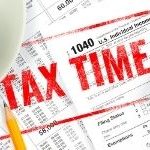The tax season can be a daunting period for small business owners, filled with uncertainty, stacks of receipts, and looming deadlines. However, with the right preparation, you can simplify this complex process and potentially save on your taxes. Preparing ahead isn’t just about ticking a task off your list; it’s about financial savvy, peace of mind, and setting your business up for long-term success. Let’s dive into six actionable tax preparation tips to make your small business tax season smoother.

1. Keep Personal and Business Expenses Separate
Even if your business files as a sole proprietorship, you are still taxed separately from your business. Most Outsourced Accounting Services know this and will help you prepare for it. It is for this reason that you need to keep any personal and business expenses you have separate. This can be made easier if you keep a reasonably accurate set of books with clearly classified accounts for all your business income and expenses. This way, when you have a business expense or income, you simply include it in your business account expenses.
2. Keep Your Records in Good Order
Some of the most common deductible items for a small business include entertainment, travel, meals, home office, charitable donations, health expenses, and start-up expenses. The easiest way to keep track of these as well as to keep them separate is to make separate envelopes for each. This way you can not only keep them together, but you will be able to present them for use in a more orderly way.
3. Familiarize Yourself with Account Balances
Did your business make money or lose money last year. There are many business owners who have no idea where their accounts stand. They consider the fact that they had money in their cash drawer at the end of their business day a good sign. Unfortunately, that often doesn’t mean much. You should at least have a good idea of where your business accounts stand at tax time.
4. Review Any Equipment Investments
Equipment purchases are a major deductible expense for nearly any business. For this reason, you should make sure you are aware of what deductions you are entitled to. It is also important to note that almost every year the tax code changes to allow different types and amounts of deductions. You should be aware of what of these you qualify for.
5. Be Aware of Tax Credits You May Qualify For
The tax code allows you to be eligible for tax credits of many different types. You might be eligible for tax credits for making certain business investments, hiring certain classifications of workers, hiring veterans, and many more. Unfortunately, unless you know about many of these, it’s impossible to claim them. You should look them up or ask a professional tax consultant for more information.
6. The Best Time to Prepare is Now
Perhaps one of the easiest ways to make sure you are prepared for the next tax season is to prepare now. This will give you the opportunity to not only learn more about what you can claim on your taxes but also have the materials you will need ready when it is time to file.
Easing the Tax Season with Preparation
Tax season for small business owners doesn’t have to be a dreaded period. By keeping organized records, understanding deductions, utilizing the right tools, and perhaps even enlisting professional help, you can make this process more manageable. Remember, preparation is key. With these tips in hand, you’re on your way to a more streamlined and efficient tax season.










